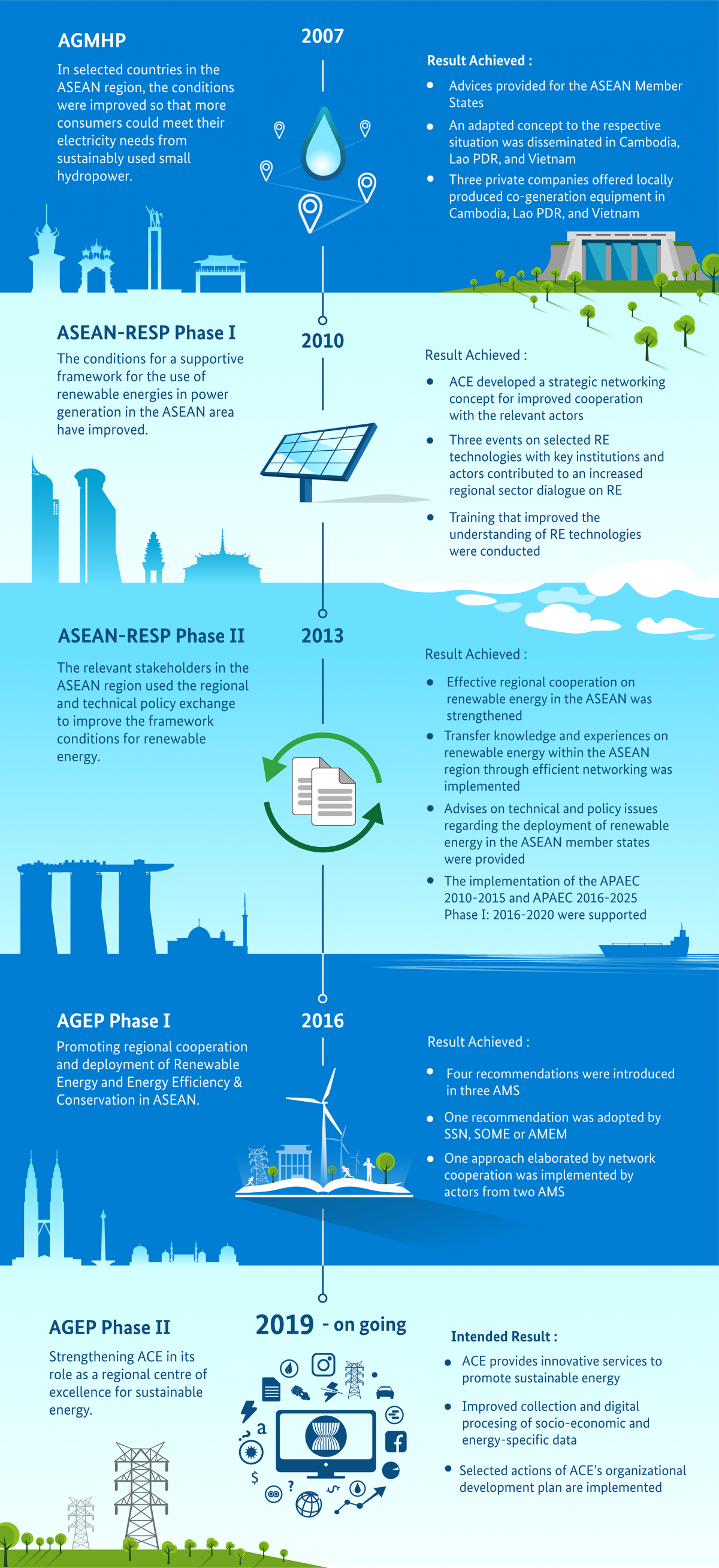The Association of Southeast Asian Nations (ASEAN) region is an economic zone of around 630 million people with regional gross domestic product of US$ 2.4 trillion (2015) growing on an average of 5.3 percent per year in the period 2007-2015. The demand for energy is immense due to the economic growth in the region driven by transport and industry sectors. However, energy demand and supply in individual ASEAN Member State (AMS) vary depending on available resources, as well as political and regulatory frameworks.
A regional guiding document, ASEAN Plan of Action for Energy Cooperation (APAEC) 2016-2025 envisages target of 23 percent of renewable energy (RE) share in total primary energy supply (TPES) by 2025. As for energy efficiency and conservation (EE&C), the AMS are committed to achieve 20 percent reduction in energy intensity by 2020 and 30 percent by 2025 based on 2005 level.
Since 2008, Germany and ASEAN Centre for Energy (ACE) have been cooperating in advancing RE in the region. Started with the implementation of ASEAN-German Mini Hydro Programme in 2007-2010 and continued with the Renewable Energy Support Programme in ASEAN in 2010-2016.
Now with additional focus field on energy efficiency, ACE and Deutsche Gesellschaft für Internationale Zusammenarbeit (GIZ) GmbH are jointly implementing ASEAN-German Energy Programme (AGEP). The programme is commissioned by the German Federal Ministry for Economic Cooperation and Development (BMZ) and is implemented from October 2016 up to June 2019.
AGEP aims to improve regional coordination for the promotion of renewable energy and energy efficiency towards sustainable energy for all. AGEP is being implemented in regional contexts in all ASEAN Member States.






